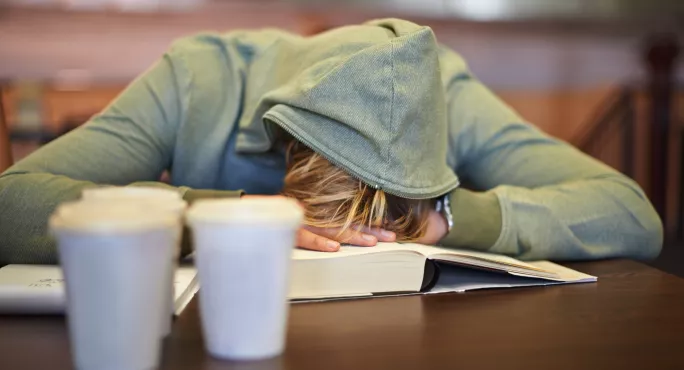“Sleep on it.” “Everything will look better in the morning”. Just a couple of the casual things we say that sum up the healing power of a good night’s sleep.
Sleep allows us to reset and to process everything that has happened to us during the course of the day - how many of us wake up knowing how to solve a problem that had us flummoxed during waking hours?
I’ve written opening paragraphs of stories in my sleep and come up with the best way to go about renovating a bathroom, but these are amateurish breakthroughs when compared with what some people manage to achieve during their eight hours or so of shut-eye: Paul McCartney famously wrote the melody for Yesterday while asleep and Einstein (who reportedly slept for at least 10 hours a day) is said to have come up with the theory of relativity after having a dream about cows being electrocuted.
Background: Pupil sleep problems ‘worsen as screen time increases’
News: Social media overuse: the struggle to get up for school
Short read: Later school start time ‘not the solution’ for tired teens
Long read: Is Nap Club at school a dream come true?
Research published last week, though, shows that adolescents are getting less sleep than they used to and are increasingly struggling to sleep. It also reveals that parents are not following advice that says mobile phones - which evidence suggests negatively affect sleep - should be kept outside children’s bedrooms at night.
Sleep and mental health
The researchers from the Health Behaviour in School-Aged Children (HBSC) survey found that the average sleep duration on weekdays was 8.3 hours for 13-year-olds and 7.8 hours for 15-year-olds - the recommended sleep for teenagers is eight to 10 hours each night.
The proportion of young people reporting sleep difficulties more than once a week increased from 23 per cent in 2014 to 30 per cent in 2018 - but drill down and those figures become more alarming. At age 15, 41 per cent of girls in 2018 reported having difficulties sleeping more than once a week (that figure was 28 per cent for boys).
The research also reveals that 92 per cent of 15-year-olds kept their phones in their room overnight, as did over 80 per cent of 13-year-olds.
Sleep expert Russell Foster - professor of circadian neuroscience at the University of Oxford - said in a recent interview that around 30 per cent of the problems that a GP encounters are related to sleep but a lack of awareness among doctors means the connection is not made. So could the worsening mental health of teenagers that surveys like HBSC have been consistently uncovering for a number of years be at least partially explained by bad sleep habits?
Anyone who has ever been deprived of sleep and experienced the low mood, irrationality and emotional rollercoaster that follow will instinctively agree that this is, indeed, possible.
Of course, talk of teenagers needing more sleep leads naturally on to the well-rehearsed arguments about whether school needs to start later - and, certainly, Foster says he holds meetings at 10am in order to get the best out of his younger colleagues.
Heads looking for a more radical solution than delaying the start of the school day might want to take a look at the US schools that have introduced sleep pods and nap clubs.
But for schools unwilling to shell out thousands for a pod so their pupils can have a 20-minute recharge - or to negotiate the problems that could arise from teenagers napping en masse - the charity Sleep Scotland might provide an answer.
Sleep Scotland runs the Sound Sleep primary and secondary programme, which aims to raise awareness of the importance of sleep for health and wellbeing. And the charity does not mince its words when making claims about the potential impact of the learning, describing it as “an invaluable tool for confronting Scotland’s child and adolescent mental health crisis”.
Not convinced? Maybe you should sleep on it.
Emma Seith is a reporter at Tes Scotland. She tweets @Emma_Seith




